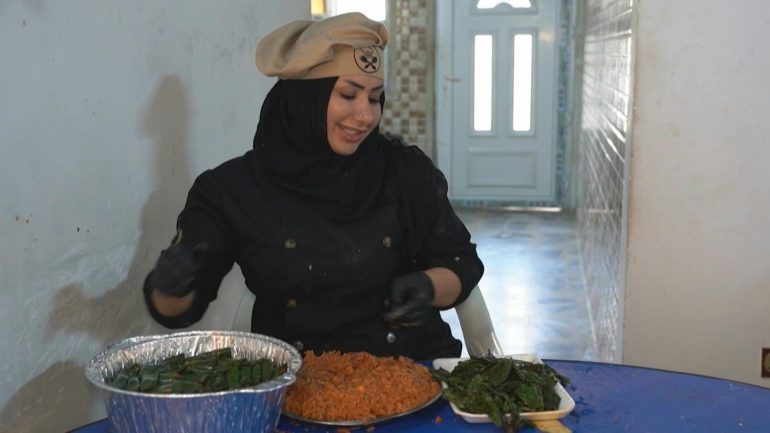In the Aftermath of War, Mosul’s Women Find Independence and Community in the Kitchen
Amid the still visible scars of conflict in Mosul, Iraq, a city that spent years under the oppressive rule of the Islamic State (IS), a unique catering service has emerged as a symbol of resilience and empowerment. Founded in 2017, shortly after the liberation of Mosul, “Taste of Mosul” has offered a lifeline to women like 37-year-old Abir Jassem, who lost her husband to hepatitis during those tumultuous years.
“For survival, I had to work,” Jassem said. This sentiment is particularly poignant in a conservative society where only slightly more than 10% of working-age women are part of the job market, as reported by the International Labour Organization in July 2022. And in a city like Mosul, where the United Nations estimated thousands were left widowed by the conflict, the challenges are even more daunting.
The brains behind “Taste of Mosul” is Mahiya Youssef, 58, who saw the unmet needs of these women as a call to action. “We live in harsh realities,” Youssef explained. “If even people with university degrees are finding it hard to get work, what could be the options for these widows and single mothers?” Starting with just two cooks, Youssef’s venture has grown to nearly 30 employees and now generates a monthly profit of more than $3,000. She has ambitions of further expanding the business, contemplating opening a restaurant and even replicating the model in other parts of Iraq.
What sets “Taste of Mosul” apart is not just its social mission but also its culinary one. Youssef has a passion for reviving old recipes that have fallen out of favor or are overlooked by mainstream restaurants. One of her employees, Makarem Abdel Rahman, a mother of two who lost her husband in 2004 to Al-Qaeda kidnappers, helps deliver dishes like hindiya—a spicy zucchini stew with kibbeh—and ouroug, fried balls of flour, meat, and vegetables. Despite some family opposition, Abdel Rahman considers “Taste of Mosul” her “second home.”
This passion for authentic, local flavors has not only offered the women financial independence but has also built a loyal customer base. Taha Ghanem, a 28-year-old café owner, is among those who frequently place orders. “In the absence of home, sometimes what you need is the comfort of home-cooked food,” Ghanem said, praising the “unique flavors” that make Mosul’s cuisine stand out.
“Taste of Mosul” serves multiple roles in this recovering community. For the women it employs, it provides not just a paycheck but a chance for social mobility and independence, even in the face of societal and familial pressure. For its customers, it serves as a reminder of a shared cultural heritage and culinary history that endured even through years of war and displacement. And for the city of Mosul itself, the catering service stands as a testament to the indomitable spirit of its people and the vital role that women can play in its reconstruction and future.
Through her endeavor, Youssef, along with her dedicated team, has managed to turn what might have been just another catering service into a platform for social change, an archive for culinary history, and a symbol of the resilience of a community working to rebuild itself from the ground up. With its multi-faceted success, “Taste of Mosul” has become a beacon of what’s possible in a post-war Iraq.
Mohammad Salim for AFP


